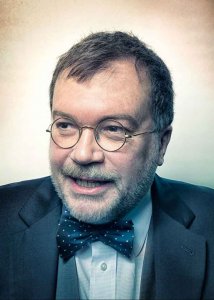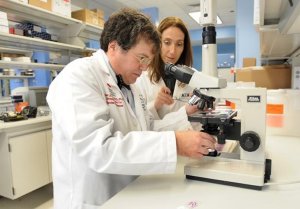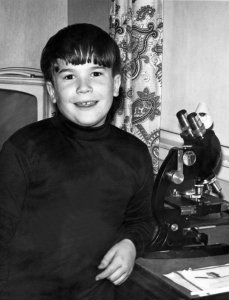
BSF Board of Governors – Dr. Peter Hotez
Meet Dr. Peter Hotez –
His Vaccines Have Saved Lives All Over the World. Now He Brings Science Diplomacy to Israel as a New BSF Board Member.

When Dr. Peter Hotez was growing up in Hartford, Conn., he used to take his parents’ atlases and draw traces of the continents and countries he saw before him. As a doctor who has spent the past 30 years developing treatments and vaccines for deadly diseases, he has visited many of those countries. He recently visited Israel for the first time in more than 20 years – and he will be going there a lot more since he became a new member of BSF’s Board of Governors.
He is honored to be on the Board for many reasons, but one of the biggest is the opportunity to engage in science diplomacy with Israelis.
“I am a big believer in science diplomacy,” he said. “I think science is one of the most powerful, and yet unexplored, tools in diplomacy. I know that science can help bridge cultural and political differences.”
Hotez knows this because he has seen this throughout his distinguished career. He currently serves as Dean of the National School of Tropical Medicine at Baylor College of Medicine in Houston, where he is also the Director of the Texas Children’s Center for Vaccine Development (CVD). In that capacity, he develops new vaccines for what he calls “the forgotten diseases” – the ones that often get ignored because they affect mostly poverty-stricken populations around the world. The World Health Organization now calls them “neglected tropical diseases” – a term that Hotez and two colleagues helped to coin to promote and raise awareness.
When Hotez served in the Obama Administration as a US Envoy, he focused on vaccine diplomacy initiatives between the U.S. and countries in the Middle East and North Africa. One of the most serious diseases affecting these regions is leishmaniasis, which is most often transmitted to humans through sand fly bites. The cutaneous form of leishmaniasis causes disfiguring (and highly stigmatizing) skin ulcers; another visceral form of the disease can progress to include fever, low red blood cells, and damage to the spleen or liver. Once it progresses to this stage, the disease can be fatal if untreated.

While there are treatments for leishmaniasis, there is no vaccine to prevent it. Hotez would like to change that, and his new role with BSF will give him opportunities to work with Israeli doctors and further study Middle East communities that are most susceptible to leishmaniasis – especially areas where poverty is prevalent, since poor housing and working conditions, coupled with a lack of sanitation, attract the sand flies that carry the leishmaniasis parasite. Leishmaniasis has reached epidemic proportions in war-ravaged areas of Syria, Iraq, and Afghanistan, and is also a serious problem in Israel and the Palestinian territories.
“I hope my visits to the Middle East and Israel will help to strengthen our efforts in vaccine science diplomacy,” Hotez said. “Leishmaniasis is a huge concern in the Middle East, and in many other nations around the world.”
Hotez was appointed by the U.S. State Department to serve on the BSF Board. When he visited Israel recently, he was impressed with what he saw.
“I visited the Weizmann Institute and Hadassah University Medical Center, and in both cases, it was similar to visiting advanced scientific and medical facilities in the states,” he said. He also visited American House Jerusalem (under the auspices of the U.S. Consulate General in Jerusalem), where he met with Palestinian doctors.
As part of the BSF Board, he looks forward to encouraging more scientific partnerships between Israel and the United States.
“The state of science in Israel has gone to a new level over the past several decades,” he said. “I know that BSF has a very high visibility in Israel. I hope to make BSF even more visible in the United States. When Israeli scientists work with their counterparts in the U.S., it really helps U.S. science, since some of the most promising scientific advancements are coming from Israel.”
Hotez himself wanted to be a scientist ever since he was in elementary school. Along with atlases, he also had a thing for microscopes.
“Even then, I wanted real microscopes! I didn’t want the toy microscopes,” he said, laughing.

He would place drops of creek water on microscope slides, look into the eyepiece, and become “absolutely amazed at this invisible world I was seeing.” That sense of discovery has stayed with him throughout his life. He obtained his undergraduate degree in molecular biophysics from Yale University in 1980 (phi beta kappa), followed by a Ph.D. degree in biochemistry from Rockefeller University in 1986, and an M.D. from Weil Cornell Medical College in 1987.
Among many career highlights in the area of neglected tropical diseases and vaccine development, Hotez emerged as a major national thought leader on the Zika epidemic in the Western Hemisphere and globally. Hotez was among the first doctors to predict Zika’s emergence in the U.S. and he was called to testify before the U.S. Congress on how the U.S. should respond to Zika. He served on infectious disease task forces for two consecutive Texas governors. For these efforts, he was named by Fortune Magazine as one of the 34 most influential people in health care in 2017.
Hotez was a founding editor of the Public Library of Science Neglected Tropical Diseases – better known as PLOS NTDs. Launched in 2001, PLOS has become an influential public archive (plos.org) providing more open access to published medical and scientific research. He has also written more than 450 original papers and several books, including Forgotten People, Forgotten Diseases (ASM Press), and Blue Marble Health: An Innovative Plan to Fight Diseases of the Poor Amid Wealth (Johns Hopkins University Press).
His next book, due out in October, will be his most personal. It’s called Vaccines Did Not Cause Rachel’s Autism. Rachel is Hotez’s youngest daughter. In the book, he talks about his own experiences raising a child with autism and profound mental disabilities, while at the same time, confronting the persistent myth of a link between vaccines and autism.

“I certainly understand the frustrations of parents whose children are on the autism spectrum. They want answers and they deserve answers. Yet at the same time, I know where science stands on this,” Hotez said. “The evidence is overwhelming that there is no link between vaccines and autism, yet there is a very vocal population that continues to perpetuate this. They are refusing to vaccinate their children and because of this, diseases that we once thought to be things of the past are coming back! It’s profoundly disappointing to me. I want to do whatever I can to refute their claims, and to promote both the safety and the necessity of vaccines.”
Along with Rachel, who is now a young adult, Hotez and his wife Ann have three other children, Matthew, Emily, and Dan. “I am very grateful for my family and for my career,” Hotez said. “I really believe that America shows its best face to the world through science, and for me, it’s a real privilege to serve my country this way.”
To pre-order Hotez’s new book, click here.
